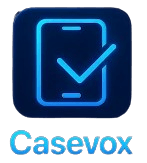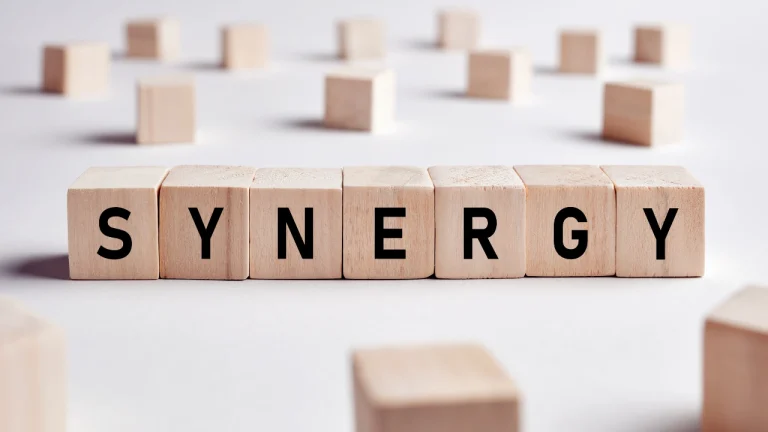Merchants Association Collection Division Phone Harassment?
Is Merchants Association Collection Division (MACD) calling you? Stop Merchants Association Collection Division phone harassment. Do they threaten to take legal action or garnish your wages? Are they calling you at all hours or several times a day? Are they telling your family and neighbors that you owe a debt? If so, what they are doing is illegal and needs to stop. You have the legal right to stop MACD phone harassment, and these rights are protected under federal law, such as the FDCPA. If a collection agency violates the FDCPA, you may be eligible to receive up to $1000.00 in statutory damages, and courts may also award attorney’s fees as part of damages in successful litigation under federal law.
If a debt collector files a lawsuit and you fail to respond, a default judgment may be entered against you, which can result in wage garnishment or bank levies. It is important to respond promptly to any legal notices from debt collectors to avoid a default judgment.
Is Merchants Association Collection Division a Scam?
According to the Better Business Bureau website, Merchants Association Collection Division has been in business for 61 years. There have been 16 complaints filed against MACD with the BBB. BBB files show patterns of complaints and regulatory scrutiny related to MACD’s collection practices.
MACD provides a range of collection services, including credit reporting, skip tracing, account management, and customized reporting for various industries. Medical bills are a common type of debt that MACD pursues as part of their collection services. MACD is also known to operate under alternate business names such as Sherloq Financial and MAF Collection Services, further establishing its presence in the debt collection industry. Read more here: Merchants Association Collection Division Better Business Bureau.
Who is Merchants Association Collection Division?
Merchants Association Collection Division is a debt collection agency and third party debt collector located in Tampa, Florida. MACD has been a party to a Federal Court case several times. They have been accused of violating consumer’s rights and illegal and harassing communication tactics to attempt to coerce a payment from the harassed consumer. Complaints have also included allegations of improper information sharing with third parties. MACD has faced legal action related to disputed debts and their handling of consumers’ requests for debt validation. Under the FDCPA, MACD is required to send consumers validation of the debt upon consumers request.
🏛️ Merchants Association Collection Divisio Address: 134 S Tampa St Tampa, FL 33602-5354
📞 Phone: (800) 749-7710
Merchants Association Collection Division Collection Tactics
If Merchants Association Collection Division engages in any of the following tactics, you may have a case:
- ➡️ Using profanity or abusive language
- ➡️ Calling you before 8:00 a.m. or after 9:00 p.m.
- ➡️ Calling you multiple times per week
- ➡️ Talking to others about your debt
- ➡️ Calling your workplace
- ➡️ Threatening to sue you, harm you, or destroy your credit
- ➡️ Telling you or anyone else that you’ve committed a crime
- ➡️ Calling repeatedly for the wrong person
- ➡️ Failing to notify you of your right to dispute the debt
- ➡️ Trying to collect more than legally allowed
- ➡️ Engaging in unfair practices, such as using unconscionable or deceptive tactics
- ➡️ Falsely representing the legal status or legitimacy of services rendered or fees associated with the debt
- ➡️ Attempting to collect on insurance-related debts without proper insurance verification

Merchants Association Collection Division Phone Numbers
Are you receiving any harassing phone calls from any of the following numbers?
- 📲 800-749-7710
- 📲 813-273-7606
- 📲 (800) 749-7710
- 📲 (813) 273-7606
- 📲 8007497710
- 📲 8132737606
Many consumers have called MACD to resolve issues or seek assistance. These calls are often about payments owed or requests to pay outstanding debts. If you are called about a legitimate debt, you may be able to negotiate a payment plan with MACD. If you make such payment, it should be properly applied to the correct debt as you direct. Resolving the issue with MACD can help stop the harassment. After payment or dispute resolution, closing accounts is an important step to ensure your credit report is updated, as delays in closing accounts for consumers can negatively affect credit profiles. MACD may collect and report credit information to credit bureaus as part of their reporting practices.
For example, if you receive repeated calls from MACD about a debt you do not owe, you can dispute the debt, request verification, and work towards resolving the issue. Once resolved, ensure that your account is closed and your credit report reflects the correct status.
If the answer is yes, then you are receiving calls from a known MACD number. You may be a victim of MACD phone harassment. The list above is not all the numbers that MACD uses. The calls can be from different numbers and it still be Merchants Association Collection Division calling you. Contact our office right away so we can start the process to stop MACD from calling you illegally. Above all, no one should live with harassment!
Credit Report and Debt Collection
Debt collection agencies, such as Merchants Association Collection Division, play a pivotal role in the process of collecting debts on behalf of creditors. As part of the debt collection industry, these agencies are required to follow strict fair debt collection practices as outlined by federal laws, including the Fair Debt Collection Practices Act (FDCPA) and the Consumer Financial Protection Act. These laws are designed to protect consumers from unfair, deceptive, or abusive debt collection practices and to ensure that debt collectors operate within clear legal boundaries.
One of the most significant impacts of debt collection is on your credit report. When a collection agency like Merchants Association Collection Division reports a debt to the credit bureaus, it can negatively affect your credit score and overall creditworthiness. That’s why it’s crucial for consumers to check their credit reports promptly and regularly. By reviewing your credit reports from Equifax, Experian, and TransUnion, you can spot any errors, outdated information, or signs of identity theft that may be affecting your credit. If you find any inaccuracies, you have the right to dispute them and request corrections, which can help protect your financial reputation.
When contacted by a debt collector, consumers have the right to request proper verification of the debt. This means the collection agency must provide written details about the debt, including the amount owed, the name of the original creditor, and any supporting documentation. If you believe the debt is not yours, is incorrect, or has already been paid, you can dispute the debt in writing. The debt collector must then cease collection efforts until they provide the requested verification. This process is a key protection under the FDCPA and helps prevent unfair debt collection practices.
Keeping a detailed record of all communications with debt collectors is another important step. Documenting phone numbers, dates, times, and the content of calls can be invaluable if you need to file a complaint with the Better Business Bureau, the Federal Trade Commission, or your state’s attorney general. These records can also support your case if you need to take legal action or if you are seeking to recover damages for debt collection harassment.
The Telephone Consumer Protection Act (TCPA) offers additional safeguards by restricting unwanted calls and texts from debt collectors. Many debt collectors, including Merchants Association Collection Division, have been held liable for violating the TCPA, and consumers may be entitled to recover damages and attorney’s fees if their rights are violated. It’s important to know that you can request, in writing, that a debt collector stop contacting you. Once this request is made, the collector must cease most forms of further communication, except to notify you of specific actions such as filing a lawsuit.
State laws may provide even more protections, such as limiting when and how debt collectors can contact you or requiring additional disclosures before attempting to collect debts. Familiarizing yourself with both federal and state laws can help you better understand your rights and the obligations of collection agencies.
If you believe a debt collector has engaged in unfair or abusive practices, you can file a complaint with the Better Business Bureau, the Federal Trade Commission, or the . These organizations investigate consumer complaints and help ensure that collection agencies like Merchants Association Collection Division comply with the law.
In summary, understanding your rights under the FDCPA, the Consumer Financial Protection Act, the TCPA, and relevant state laws is essential when dealing with debt collectors. By staying informed, checking your credit report promptly, keeping thorough records, and knowing how to dispute debts and file complaints, you can protect yourself from abusive debt collection practices and maintain control over your financial future. If you need assistance, don’t hesitate to consult a consumer law attorney who can help you resolve disputes and recover damages if your rights have been violated.

The following is a sample list of complaints filed against Merchants Association Collection Division in the past and can be found on Pacer.gov.
- 🔗2:04-cv-00429-PMP-PAL Linda Facciola vs
- 🔗0:16-cv-62409-WJZ Gavirina v.
- 🔗 3:10-cv-01098-TJC-MCR Sutton v.
About Us
Consumer Rights Law Firm PLLC is a law firm that specializes in helping clients who are facing harassment from debt collectors in any form, including telephone communication. Rather than suffer alone, contact our office to begin the process to stop the Merchants Association Collection Division harassment. Our office has been assisting consumers since 2010. We have an A+ rating with the Better Business Bureau.
If you are interested in learning more about how to safeguard yourself and prevent harassment from Merchants Association Collection Division. call us at 877-700-5790 for immediate assistance or visit our website.
Success Stories
- 🏆 “I felt powerless dealing with aggressive collectors until I found Consumer Rights Law Firm PLLC. They took my case seriously and guided me through the entire process. The harassing calls stopped, and I finally felt heard. They truly advocate for people like me who just want peace.”
- 🏆 “Debt collectors were calling my home at all hours and even speaking rudely to my spouse. I contacted Consumer Rights Law Firm PLLC, and they quickly stepped in. Not only did the calls stop, but the firm also helped us understand our legal rights. I’m grateful for their dedication and professionalism.”
- 🏆 “From the very first call, the staff at Consumer Rights Law Firm PLLC was helpful and compassionate. They handled everything from start to finish and kept me updated every step of the way. I couldn’t believe how fast the harassment ended. They truly deliver results.”
- 🏆 “I had no idea that debt collectors weren’t allowed to threaten or harass people. Consumer Rights Law Firm PLLC educated me, built a strong case, and held the collectors accountable. They didn’t just stop the calls—they helped me regain control over my life.”
FAQs
Who is Merchants Association Collection Division and why are they calling me?
Merchants Association Collection Division is a debt collection agency, also known as Hospital & Professional Services Bureau or MAF Collection Services. They contact consumers regarding past-due balances they believe are owed.
Is Merchants Association Collection Division a legitimate debt collector or a scam?
They appear to be a legitimate debt collection agency operating since 1958 in Tampa, Florida. While they have received consumer complaints, they maintain a BBB A-rating. You should still request written debt validation to confirm any alleged debt.
Why am I receiving repeated phone calls from that 800-749-7710 number?
The phone number 800-749-7710 is commonly associated with Merchants Association Collection Division. Many consumers report frequent calls from this number as part of collection efforts.
Can they legally call me more than seven times in a week?
Federal law presumes a violation if a debt collector calls more than seven times within seven consecutive days or contacts you again within seven days after speaking with you about the same debt.
What should I do if they continue harassing me with phone calls?
You should keep a log of all calls, request debt validation in writing, send a cease-and-desist letter if needed, block the number, and consider filing complaints with regulatory agencies.
Am I entitled to sue them for harassment?
Yes. If they violate federal debt collection or telemarketing laws, you may be able to sue for statutory damages, attorney fees, and other legal costs.
Can they call my family or employer about my debt?
They may contact third parties only to locate you, such as asking for your phone number or address. They are not allowed to discuss your debt with family members or employers.
Are they allowed to call me outside of standard hours?
No. Debt collectors are prohibited from calling before 8 a.m. or after 9 p.m. local time unless you give explicit permission.
Can they affect my credit score?
Yes. If a valid debt is reported to credit bureaus, it can negatively affect your credit score. You have the right to dispute any inaccurate information.
What legal protections do I have against debt collection harassment?
You are protected by federal laws that prohibit abusive practices, misleading statements, excessive calls, improper credit reporting, and contact with unauthorized third parties.







